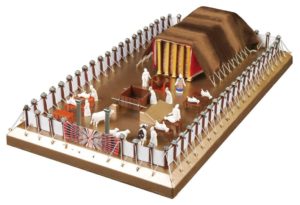Hi Leader Friend,
Goodness gracious, I’ve missed y’all. I took a sabbatical summer as I approached my 50th birthday in July, my year of Jubilee! Fifty feels good, friends. The Lord is revealing so many leadership messages, and I can’t wait to see what you think.
Many of you know how much I love Moses as a leader. I confess, though, I really had not learned much about Bezalel, Moses’ Chief Artisan whose name I can hardly pronounce.
Bezalel is found in Exodus 31: 1-6. Let me set the scene. Moses was called by God to lead the two milion + Israelites to the Promised Land. They were stubborn. What journey was supposed to take 11 days took 40 years.
Moses would go up to Mount Sinai to get away from the crowd and hear God clearly. Don’t we all need that?
God spoke clearly to Moses on Mount Sinai. The Ten Commandments had been given in Exodus 20. Now they need a place for God to dwell—a mobile worship Center. God gave Moses specific instructions about building the Tabernacle.
Now we come to Exodus 31: 1-6. This is where it hit me:
Bezalel, this unknown leader and Moses’ Chief Artisan to build the Tabernacle, is the first man in the Bible to have the Spirit of God in him. 
What? What about Noah. In Genesis 6, found favor in sight of the Lord.
Bezalel was the grandson of Hur. Who was Hur? Remember he and Aaron, Moses’ priestly brother, held Moses’ arms up to win the battle in Exodus 17:8-13
He came from the Tribe of Judah. Who else came from the Tribe of Judah? Jesus, Lion of Judah.
What leadership lessons can we learn from Bezalel?
- Like Bezalel, God sets us apart for His service and infuses His Spirit in us. Bezalel and Ohaliab surrendered their lives to the calling. First man to have “Spirit of God” in him, 1500 years before the Holy Spirit in Acts 2 officially indwells among us. Spirit of God hovered, even in Genesis 1:2.
- When we serve with our best effort of excellence, God entrusts us with more. Exodus 35:6-7, Exodus 35:30, 36:1-7
- In all every assignment God gives us, finish the assignment and follow through. Starting in Exodus 37, the He is Bezalel. Exodus 39:22-26. Exodus 39:32, 42-43. It is finished.
- When we serve according to His will, the Lord blesses it. Exodus 40:34-36.
In the Old Testament, Bezalel built the Tabernacle. Since Jesus Christ’s death and resurrection, now the Tabernacle dwells inside us with the power of the Holy Spirit. We each are Bezalels.
What is God calling you to do for Him?
How is God calling you in this season to step out in faith.
Be encouraged, leader. You are a Bezalel, God’s Masterpiece and Chief Artisan.








 Danya Jordan
Danya Jordan